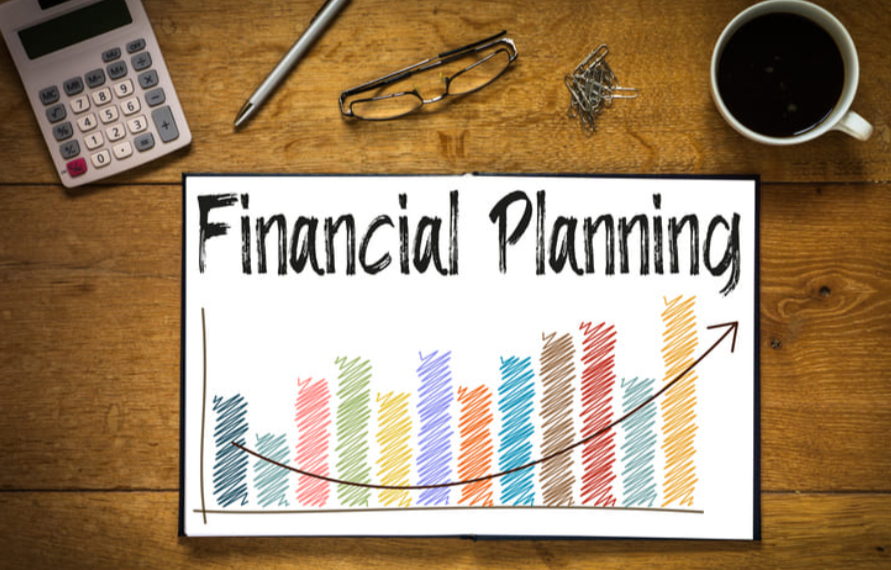Are you ready to leap investing in Ireland? Whether you’re a complete novice or just looking to refine your knowledge, this beginner-friendly guide is here to set you on the right path. The world of investments can seem daunting with all its terminology and options, but it doesn’t have to be. With some basic understanding and guidance, anyone can start their journey toward financial growth.
Investing offers a fantastic opportunity to grow your money over time. From building wealth for retirement to funding future aspirations, knowing how and where to invest is crucial. This guide will walk you through essential steps that make investing accessible for everyone.
Let’s dive in!
Step 1: What Does Investing Mean?
Investing is often misunderstood, but at its core, it’s about growing your money. It involves committing funds to an asset with the expectation that it will generate a profit over time.
When you invest, you’re buying something today with the hope that its value will increase in the future. This could be stocks, bonds, property or even investment funds in Ireland.
The key idea is putting your money to work for you. Rather than letting cash sit idle in a bank account earning minimal interest, investing seeks higher returns by taking on some level of risk.
Understanding this fundamental concept sets the stage for making informed decisions. It’s more than just a financial transaction; it’s a pathway to building wealth and achieving financial goals over time.
Step 2: What Investment Options Are Available?
When exploring investing in Ireland, it’s essential to know your options. The landscape is diverse and tailored for various risk appetites.
Stocks are among the most popular choices. They represent ownership in companies and offer potential growth through appreciation and dividends.
Bonds provide a different angle, often considered safer than stocks. When you buy bonds, you’re essentially lending money to governments or corporations in exchange for interest payments.
Investment funds are another excellent avenue. These pools of money allow individuals to invest collectively, spreading out risk across multiple assets. Look into mutual funds or ETFs that suit your goals.
Real estate remains a solid option, too. Investing in property can yield rental income while also appreciating over time.
Consider alternative investments like commodities or cryptocurrencies if you’re looking for something beyond traditional avenues. Each choice has its unique pros and cons—exploring them thoroughly will set you up for success.
Step 3: Define Your Investment Goals
Setting clear investment goals is crucial for your journey into investing in Ireland. Consider what you hope to achieve with your investments. Are you saving for a home, retirement, or perhaps education? Knowing this will guide your decisions.
Timeframe matters too. Short-term goals differ from long-term aspirations in strategy and risk tolerance. If you’re aiming for something within five years, you might want safer options compared to a goal set 20 years down the line.
Also, think about how much money you’ll need and when. This helps determine the type of investment funds suitable for you.
Don’t forget to review these goals regularly as life circumstances change—flexibility can be key to successful investing!
Step 4: Work Out How Much You Can Invest
Determining how much you can invest is a crucial step in your investing journey. Start by evaluating your monthly income and expenses. This gives you a clear picture of what’s available for investment.
Consider creating a budget that allows you to allocate funds specifically for investments. It doesn’t have to be substantial; even small amounts can grow over time with the right strategy.
Don’t forget to set aside an emergency fund before diving into investments. This ensures financial stability should unexpected expenses arise.
Think about your short-term and long-term goals as well. Your investment capacity may vary depending on whether you’re saving for retirement, a home, or just looking to grow wealth gradually.
Clarity around your finances will empower you to make informed decisions without compromising your lifestyle or peace of mind while investing in Ireland.
Contact Money Maximising Advisors team for personalised guidance tailored to your financial goals.
Step 5: Understand Your Attitude to Risk
Understanding your attitude to risk is crucial when investing in Ireland. Each investor has a unique comfort level with risk, which directly impacts investment choices.
Consider how you react to market fluctuations. Are you anxious during downturns or more relaxed? Your emotional response can guide your strategy.
Assess your financial situation too. If you have a stable income and savings, you might tolerate higher risks for potential growth. Conversely, if you’re reliant on these funds soon, a conservative approach may suit you better.
Think about your goals as well. Long-term aspirations often allow for bolder investments compared to short-term needs, where preservation of capital takes precedence.
Recognising your risk tolerance helps tailor an investment plan that aligns with both your personality and objectives. This clarity sets the foundation for sound decisions in the diverse landscape of investment funds in Ireland.
Step 6: Learn About Risk Ratings & Fund Types
Understanding risk ratings and fund types is vital for any beginner thinking about investing in Ireland. Risk ratings help you gauge the potential volatility of an investment. They usually range from low to high, indicating how much price fluctuation you might expect.
Different fund types cater to various investor needs. For instance, equity funds primarily invest in stocks and can offer higher returns but come with greater risks. On the other hand, bond funds focus on fixed-income securities and generally provide more stability.
Investing money wisely means selecting a fund type that aligns with your risk tolerance. If you’re uncomfortable with significant fluctuations, consider lower-risk options like index or balanced funds. The key is knowing what fits your financial goals while also being aware of how different investments perform over time. This knowledge will serve as a solid foundation as you navigate the world of investment funds in Ireland.
Step 7: Choose the Right Investment Fund
Choosing the right investment fund is crucial for your financial journey. With numerous options available in Ireland, it can feel overwhelming at first.
Start by identifying funds that align with your investment goals and time horizon. Are you looking for growth over the long term or short-term gains?
Research different types of funds—equity, bond, or mixed funds—and understand how each functions. Consider the costs associated with these funds, as fees can eat into your returns.
Check the performance history of potential investment funds. While past performance isn’t a guarantee of future results, it provides insight into how well a fund has navigated various market conditions.
Don’t forget to evaluate fund managers’ expertise. A seasoned manager often means better decision-making and more informed choices about where to invest your money.
Take the time to compare multiple options; this diligence could lead you toward some of the best investments in Ireland tailored just for you.
Step 8: Regular or Lump Sum Investment?
When deciding between regular or lump sum investments, consider your financial situation and goals. Regular investments involve contributing a fixed amount at set intervals. This method can help you build wealth gradually and benefit from dollar-cost averaging.
Lump-sum investing means putting in a larger amount all at once. This approach allows for potentially higher returns if the market performs well immediately after your investment. However, it comes with greater risk, especially if the timing isn’t favourable.
Your comfort level with market fluctuations plays a crucial role here. If you’re hesitant about large swings in value, regular contributions might be more suitable for you. On the other hand, if you’re ready to embrace volatility for potential gains, lump sums could offer advantages.
Both strategies have their place in good investments in Ireland; it’s about finding what fits best within your investment journey and aligns with your financial objectives.
Step 9: Start Investing in Ireland
Now that you’ve laid the groundwork, it’s time to take action. Starting your investment journey in Ireland is an exciting step.
Choose a reliable brokerage platform or financial advisor. Research their fees and services carefully. A solid choice can make all the difference.
Open an investment account tailored to your needs. Many platforms offer user-friendly interfaces suitable for beginners.
Once set up, consider starting with small amounts if you’re feeling cautious. This approach helps you familiarise yourself with market fluctuations without overwhelming risk.
Diversification is key; don’t put all your eggs in one basket. Spread investments across various sectors such as tech, real estate, or sustainable funds for balance.
Stay informed about market trends and economic indicators relevant to investing in Ireland. Knowledge empowers you to make better decisions as opportunities arise.
Conclusion
Investing in Ireland can seem daunting, especially for beginners. However, by understanding the basics and following a structured approach, you can navigate the investment landscape with confidence. Start by defining what investing means to you and explore the various options available—be it stocks, bonds, or real estate.
Clearly outline your investment goals and determine how much you can afford to invest without straining your finances. Knowing your attitude towards risk is crucial as it will guide your choices in selecting suitable investment funds. Familiarise yourself with different fund types and their risk ratings to make informed decisions.
Consider whether regular investments or lump sum contributions work best for you based on your financial situation and comfort level. Once you’ve aligned all these factors, take the plunge into investing in Ireland.
Call Money Maximising Advisors today and take the first step towards smarter investing in Ireland!
More articles:
- College Education Savings Plan in Ireland: The 2025 Parent’s Guide to Smart Education Planning
- Gift/Inheritance Tax Savings Plans: How Do I Avoid Inheritance Tax on My Savings?
- Inheritance Tax Advice In Ireland: Where Can I Get Advice on Inheritance Tax?
- How to Avoid Paying Inheritance Tax in Ireland?
- How can I Reduce My Inheritance Tax in Ireland?
- What is the Most You can Inherit without Paying Taxes?
- Inheritance Tax Q&A: Get Answers To Your Most Pressing Questions About Protecting Your Family’s Inheritance
- Understanding the Tax Implications of Section 73 Policy in Ireland
- Section 72 Policies in Galway, Ireland: What happens if you can’t pay inheritance tax in Ireland?










